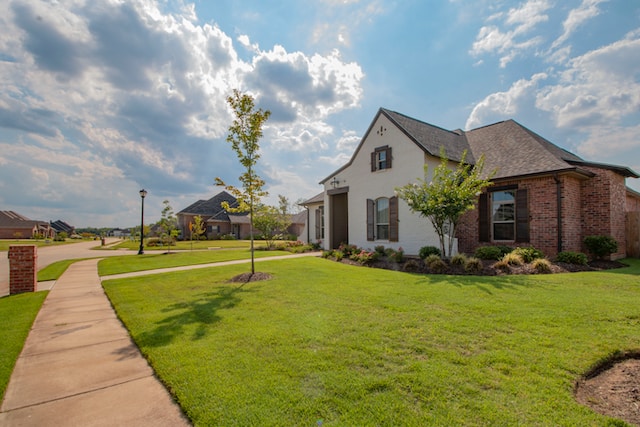In today’s computerized age, information has ended up as a profitable resource for businesses over different businesses. Genuine bequests are not an exemption. The capacity to assemble and analyze information can give important bits of knowledge into showcase patterns, competitor procedures, and client inclinations. This is where web scratching comes in. Web scraping is the preparation of extricating information from websites, and it has demonstrated to be a capable device for real estate experts looking to pick up a competitive edge.
Understanding the Benefits of Web Scraping for Real Estate
Web scratching offers a huge number of benefits for experts in the genuine bequest industry. Firstly, it permits you to accumulate an expansive sum of information rapidly and productively. Instead of physically looking and recording data from different websites, web scratching computerized the preparation, sparing you time and exertion. This empowers you to collect information from different sources, such as property postings, rental costs, and advertising patterns, all in one place.
Secondly, web scratching gives you real-time information. By frequently scratching websites, you can remain upgraded to the most recent showcase changes and patterns. This permits you to make educated choices based on the most up-to-date data accessible. For example, if you are a genuine domain speculator, you can utilize web scratching to screen property costs in distinctive regions and recognize potential venture opportunities.
Lastly, web scratching upgrades your information investigation capabilities. By extracting information from numerous websites, you can make comprehensive datasets for investigation. This empowers you to distinguish designs, relationships, and patterns that may not be clear from personal sources alone. With these experiences, you can make data-driven choices that are more likely to lead to victory in the genuine domain market.
Using Web Scraping to Gather Real Estate Market Insights
Getting market information is one of the main uses of web scraping in the real estate sector. You may acquire a thorough understanding of the industry and important insights that can guide your company’s decisions by scraping data from several sources. The following are some instances of market analysis using web scraping:
Property price analysis: You may track and examine property values across multiple places with the use of web scraping. You may make well-informed investment selections by identifying locations with growing or declining prices by tracking pricing patterns over time.
Market demand analysis: Market demand analysis: By gathering information on consumer preferences, property attributes, or search terms, web scraping can assist you in understanding market demand. You may use this information to help you make decisions about property development or refurbishment that will meet market demand.
Competition analysis: You may learn about your rivals’ pricing policies, real estate holdings, and marketing approaches by scraping data from their websites. You may use this information to find market gaps and create a competitive edge.
With the use of web scraping, you may collect and examine enormous amounts of data that may provide undiscovered industry insights. You may remain ahead of the competition in the real estate market and make better judgments by utilizing these insights.
Tools and Techniques for Successful Web Scraping in Real Estate
Web scraping libraries
Python libraries that offer strong capabilities for web scraping include BeautifulSoup and Scrapy. These libraries include functions for data extraction in an organized manner, data location, and web page navigation.
Proxies
Proxies enable you to route your scraping requests through different IP addresses, providing anonymity and bypassing IP blocking or rate limits imposed by websites. Proxy services such as Scraper API and ProxyMesh offer convenient solutions for managing proxies.
Web scraping tools
Web scraping software, like Octoparse, is designed specifically to extract data from webpages swiftly and efficiently. They can process large data volumes faster than manual methods. These programs offer features enabling users to easily navigate and extract data from multiple web pages.
For instance, Octoparse is a user-friendly tool suitable for newcomers, including novices wishing to scrape Forbes. Its design focuses on simplicity and ease, allowing users to select data, set crawling rules, and navigate websites through a point-and-click interface without needing complex programming skills.
How to Scrape Real Estate Websites Using Octoparse
Step 1: Enter url(s) from the Real Estate site
Just copy and paste the appropriate URL or URLs into Octoparse’s search field. When you click the “Start” button, Octoparse’s integrated browser will launch a new task and load the relevant webpage.
Step 2: Create a workflow and select wanted data fields
Wait until the page completes loading, then click “Auto-detect webpage data” in the Tips panel. Let’s Octoparse scan the page and highlight extractable data for you. You can edit detected data fields and remove unnecessary fields at the bottom. Click “Create workflow” once you’ve selected all the desired data. The workflow will show up on the right-hand side.
Step 3: Run the task and export scraped data
You can continue by selecting the “Run” option after you’ve read through all the information. Next, you may choose to use Octoparse’s cloud servers or do the task on your local device. Once everything is finished, you may store the gathered information for later use in local files like Excel or databases like Google Sheets.
By the way, it’s always worth checking first if there’s a pre-built template that works for you, in which case you’ll only need to fill in a few parameters to scrape the data you need. If none of the templates match your needs and you don’t want to create your own scraper, email us your project details and requirements. We’re here to assist!
Unlocking the power of web scraping for real estate
Web scratching has revolutionized the way real estate professionals assemble and analyze information. By robotizing the information extraction handle, web scratching spares time, gives real-time experiences, and improves information examination capabilities. Be that as it may, it is basic to explore the challenges, restrictions, and moral contemplations related to web scraping.
By taking after the best homes, utilizing the right apparatuses and methods, and leveraging web scratching to showcase examination and competitive insights, genuine bequest experts can open up control of information and pick up a competitive edge in the industry. Whether you are a genuine bequest financial specialist, operator, or property director, web scratching can give you profitable experiences to educate your trade choices and drive success.
Embrace the control of web scratching in the genuine domain industry and open the full potential of information to boost your information bits of knowledge and remain ahead of the competition.




